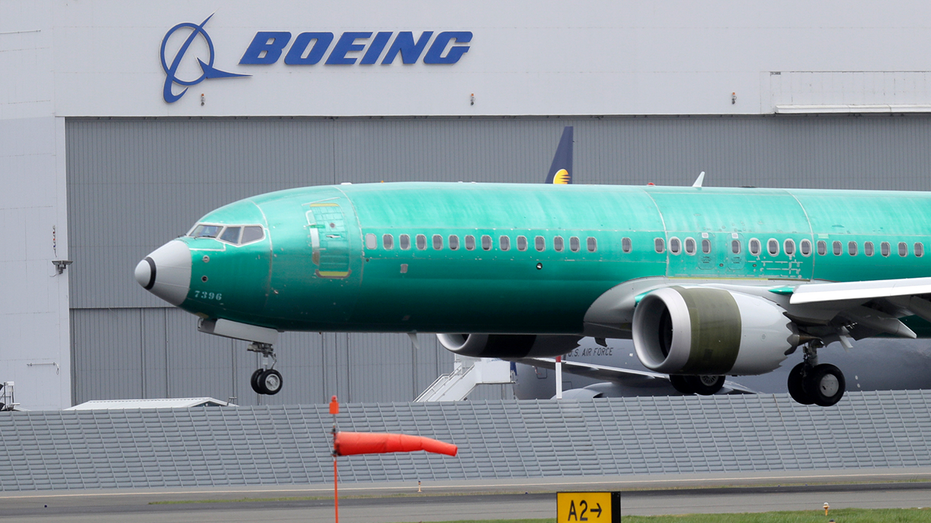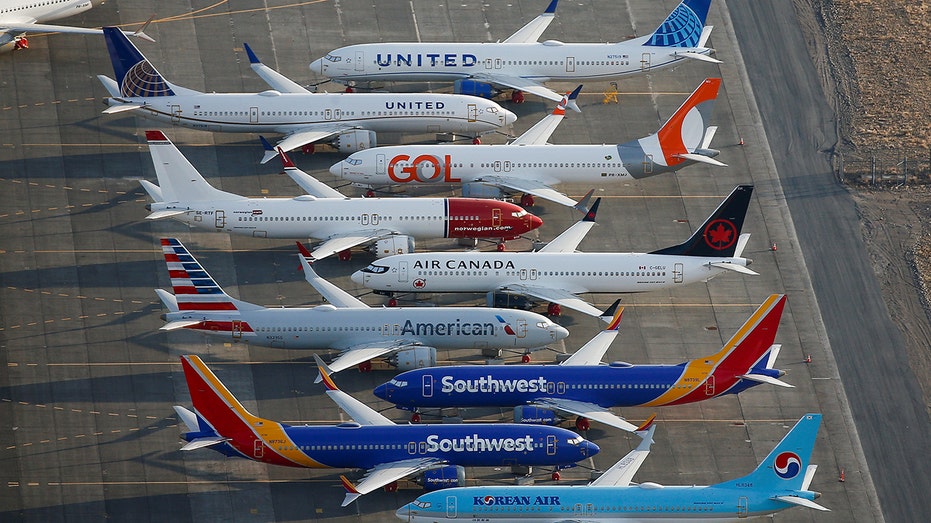Boeing shareholders reach settlement in 737 MAX board oversight suit
Current and former directors’ insurance companies expected to pay Boeing about $225 million
Current and former Boeing Co. directors have reached an approximately $225 million agreement to settle a shareholder lawsuit that claimed the plane maker’s board failed to properly oversee safety matters related to the 737 MAX, according to people familiar with the matter.
As part of the proposed settlement, Boeing has agreed to hire an ombudsman to handle internal issues and appoint a board member with experience in aviation safety, some of these people said.
GET FOX BUSINESS ON THE GO BY CLICKING HERE
The settlement isn’t expected to include an admission of wrongdoing on the part of the directors, including Chief Executive David Calhoun, some of the people said. Mr. Calhoun, a director since 2009, was among board members who oversaw management during the airplane’s development and between two MAX accidents, which took 346 lives.
The monetary portion of the settlement would be paid by directors’ insurers to the corporation, the people familiar with the agreement said.

A Boeing 737 MAX (Associated Press)
The proposed settlement was expected to be filed in Delaware’s Court of Chancery as soon as Friday and would require a judge’s approval, some of these people said.
US LAWMAKER BLAMES BOEING LEADERS FOR CULTURE THAT LED TO CRASHES
Two of Boeing’s 737 MAX jets crashed in late 2018 and early 2019. The company has since shaken up its board and management and changed how it handles safety, including adding a board committee focused on the topic.
Lead plaintiffs in the case are administrators of two public pensions: New York State Comptroller Thomas DiNapoli, who oversees the New York State and Local Retirement System; and the Fire and Police Pension Association of Colorado.

Boeing 737 MAX aircraft at Boeing facilities at the Grant County International Airport in Moses Lake, Washington, REUTERS/Lindsey Wasson
Among its claims, the lawsuit alleged Boeing’s board failed to challenge then-CEO Dennis Muilenburg over 737 MAX safety issues, or his campaign to counter negative news reports between the two fatal accidents.
BOEING WORKERS STAGE PROTEST OVER VACCINE MANDATE
The suit also claimed Boeing’s Mr. Calhoun, who previously served as lead director and chairman, exaggerated to journalists the extent of directors’ safety oversight.
Boeing had argued the plaintiffs’ suit portrayed an incomplete and misleading picture of directors’ safety oversight. The company has also said the plaintiffs misrepresented Mr. Calhoun’s public comments about board oversight.
The proposed settlement would come weeks after the judge overseeing the case, Vice Chancellor Morgan Zurn of Delaware’s Court of Chancery, denied Boeing’s attempt to have the suit dismissed.
| Ticker | Security | Last | Change | Change % |
|---|---|---|---|---|
| BA | THE BOEING CO. | 243.03 | +6.08 | +2.57% |
After the second crash in 2019, Boeing’s board formed a safety committee as part of a broader revamp aimed at increasing senior leaders’ oversight of engineering and safety matters. Accident investigators in the crash largely blamed a faulty flight-control system for sending the jets into fatal nosedives.
The Boeing case is different from a securities-fraud lawsuit through which plaintiffs themselves might recoup investment losses. Known as a shareholder derivative complaint, such legal actions seek to hold company officials responsible for alleged missteps and could result in defendants or their insurers paying monetary damages to a corporation and prompt internal governance changes. The plaintiffs in the Boeing case drew upon thousands of internal board documents such as meeting minutes and emails they accessed under Delaware state law.
CLICK HERE TO READ MORE ON FOX BUSINESS
Last year, Wells Fargo & Co. settled with plaintiffs who filed a similar legal action related to the scandal over the bank’s sales tactics, according to court documents in the case. The agreement included $240 million paid by defendants’ insurers to the corporation, as well as governance changes and clawbacks, according to the court documents.
Write to Andrew Tangel at Andrew.Tangel@wsj.com




















